Czech guláš is a rich and hearty beef stew, slow-cooked with onions, paprika, and spices for deep, comforting flavors. Unlike its Hungarian counterpart, the Czech version is thicker, often served with dumplings or crusty bread to soak up the flavorful sauce. Perfect for cold evenings, this dish embodies the warmth and tradition of Czech cuisine.
Ingredients
- 1 kg beef chuck or another well-marbled cut of beef like brisket or round, cubed
- 2 large onions, finely chopped
- 3 cloves garlic, minced
- 3 tablespoons sweet paprika
- 1 tablespoons smoked paprika optional
- 1 tablespoons caraway seeds optional
- 2 tablespoons all-purpose flour
- 2 tablespoons vegetable oil
- 500 ml beef broth or water
- 3 tablespoons tomato paste or 2 ripe tomatoes, chopped
- 1 bay leaf
- Salt and pepper, to taste
- 1 tsp sugar
- Fresh parsley, finely chopped for garnish
- Czech dumplings (knedlíky) or crusty bread, for serving
- Czech pilsner beer, for pairing
Instructions
Prepare the beef:
- Cut the beef chuck into bite-sized cubes (2-3 cm in size).

- Heat the vegetable oil in a large pot or Dutch oven over medium-high heat.
- Brown the beef cubes in batches to develop flavor. Remove and set aside.
Caramelize the onions:
- In the same pot, add the chopped onions and cook over medium heat.
- Stir occasionally until they become golden brown (about 10-12 minutes).
Add garlic and spices:
- Add minced garlic, sweet paprika, smoked paprika (if using), and caraway seeds (optional).

- Stir and cook for 1-2 minutes, ensuring spices release their flavors without burning.
Thicken the stew:
- Stir in the flour and cook for 2-3 minutes to form a smooth base.
Add liquids and seasonings:
- Pour in the beef broth and mix well.
- Add tomato paste (or chopped tomatoes), bay leaf, salt, pepper, and sugar.
- Return the browned beef to the pot and stir to coat.
Simmer the guláš:
- Bring to a boil, then reduce heat to low.

- Cover and let simmer for 1.5 to 2 hours, stirring occasionally.
- If needed, add more broth or water to reach desired consistency.
Final adjustments:
- Taste and adjust seasoning if necessary.
- Remove the bay leaf before serving.
Serve:
- Garnish with fresh parsley.
- Serve with Czech dumplings (knedlíky) or crusty bread.
- Pair with a Czech pilsner beer for an authentic experience.
Notes
Czech Guláš
The dish we now know as Czech guláš has an interesting history, with its origins tracing back to Hungary, where it was first created centuries ago. Over time, however, the dish has undergone a transformation as it made its way into Czech kitchens, evolving into a rich and hearty stew that stands apart from its Hungarian predecessor. The Czech version of guláš has become a true icon of Czech cuisine, cherished as one of the country's most beloved comfort foods.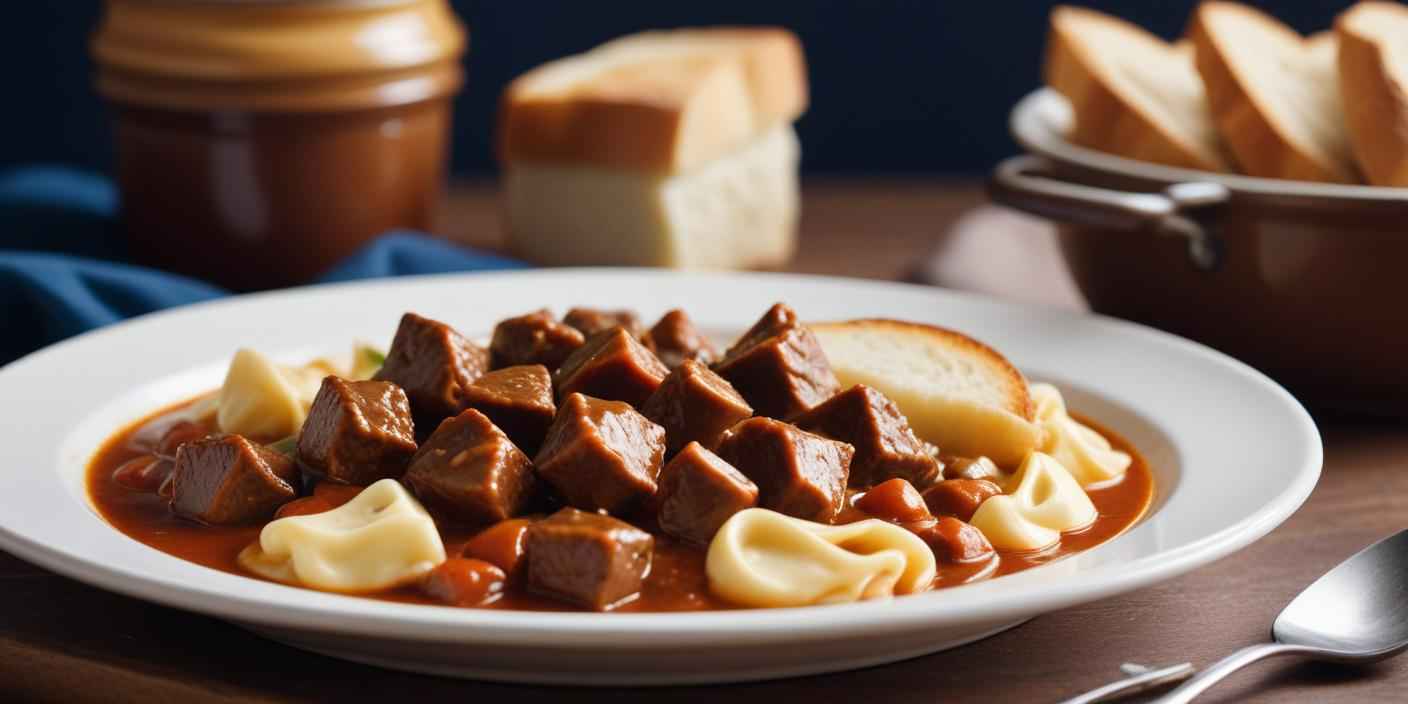 Czech guláš dates back to the 9th century, originating as a humble stew made by Hungarian herders. The early goulash was a simple combination of meat, vegetables, and spices, cooked slowly over open flames. As the dish traveled across Central Europe, the Czech people embraced it and began adding their own flair to the recipe. While it shares its roots with Hungary, the Czech take on guláš is distinct, with a thicker, heartier texture and a deeper, more concentrated flavor profile.
The main difference between Czech and Hungarian guláš lies in the preparation and the ingredients. While the Hungarian version often includes carrots, potatoes, and csipetke dumplings (small hand-shaped dumplings), the Czech version opts for a more focused and simplified approach, allowing the beef and onions to be the primary components. The beef in Czech guláš is slow-cooked until it is incredibly tender, while the onions are caramelized to bring out their natural sweetness and depth, contributing to the richness of the stew. Paprika, a quintessential ingredient in both versions, takes center stage in the Czech guláš, giving the dish its vibrant color and smoky, slightly spicy flavor.
The key to the Czech version’s thick, comforting texture lies in the addition of flour, which helps to create a smooth, almost gravy-like consistency. This makes the guláš perfect for pairing with Czech-style dumplings or slices of hearty, crusty bread that can absorb the rich, flavorful sauce.
Czech guláš dates back to the 9th century, originating as a humble stew made by Hungarian herders. The early goulash was a simple combination of meat, vegetables, and spices, cooked slowly over open flames. As the dish traveled across Central Europe, the Czech people embraced it and began adding their own flair to the recipe. While it shares its roots with Hungary, the Czech take on guláš is distinct, with a thicker, heartier texture and a deeper, more concentrated flavor profile.
The main difference between Czech and Hungarian guláš lies in the preparation and the ingredients. While the Hungarian version often includes carrots, potatoes, and csipetke dumplings (small hand-shaped dumplings), the Czech version opts for a more focused and simplified approach, allowing the beef and onions to be the primary components. The beef in Czech guláš is slow-cooked until it is incredibly tender, while the onions are caramelized to bring out their natural sweetness and depth, contributing to the richness of the stew. Paprika, a quintessential ingredient in both versions, takes center stage in the Czech guláš, giving the dish its vibrant color and smoky, slightly spicy flavor.
The key to the Czech version’s thick, comforting texture lies in the addition of flour, which helps to create a smooth, almost gravy-like consistency. This makes the guláš perfect for pairing with Czech-style dumplings or slices of hearty, crusty bread that can absorb the rich, flavorful sauce.Serving Suggestions:
- Czech dumplings (knedlíky): These soft, pillowy dumplings are a perfect match for guláš. Made from flour, yeast, and sometimes bread, they are traditionally steamed and serve as a perfect vehicle for soaking up the thick, flavorful sauce.
- Sourdough bread: If you're looking for a more rustic experience, serve the guláš with hearty slices of sourdough bread. The crunchy texture of the bread pairs beautifully with the rich, thick sauce, making each bite satisfying and comforting.
- Czech Pilsner beer: A refreshing Czech pilsner is the ideal beverage to accompany guláš. Its light, crisp character cuts through the richness of the dish, balancing the flavors and enhancing the overall meal.
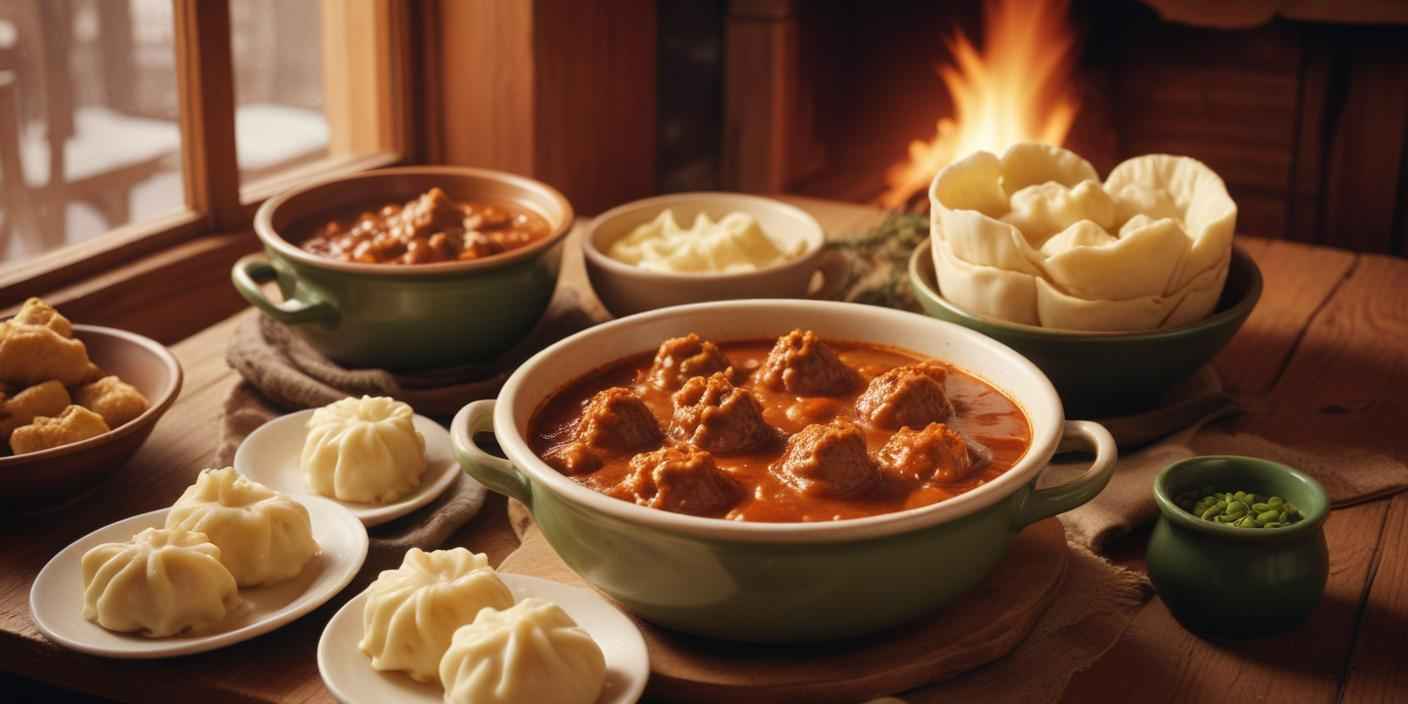 Czech guláš is more than just a meal; it is a testament to the Czech people’s love for robust, satisfying flavors. While its origins lie in Hungary, the Czech version of guláš has evolved into a dish that reflects the heart and soul of Czech cuisine. Whether enjoyed in the cozy atmosphere of a traditional Czech pub or prepared at home for a special family meal, Czech guláš is sure to provide a fulfilling, flavorful, and distinctly comforting dining experience. It's a dish that brings people together and leaves everyone with a feeling of warmth and contentment, making it an essential part of Czech culinary culture.
Czech guláš is more than just a meal; it is a testament to the Czech people’s love for robust, satisfying flavors. While its origins lie in Hungary, the Czech version of guláš has evolved into a dish that reflects the heart and soul of Czech cuisine. Whether enjoyed in the cozy atmosphere of a traditional Czech pub or prepared at home for a special family meal, Czech guláš is sure to provide a fulfilling, flavorful, and distinctly comforting dining experience. It's a dish that brings people together and leaves everyone with a feeling of warmth and contentment, making it an essential part of Czech culinary culture.

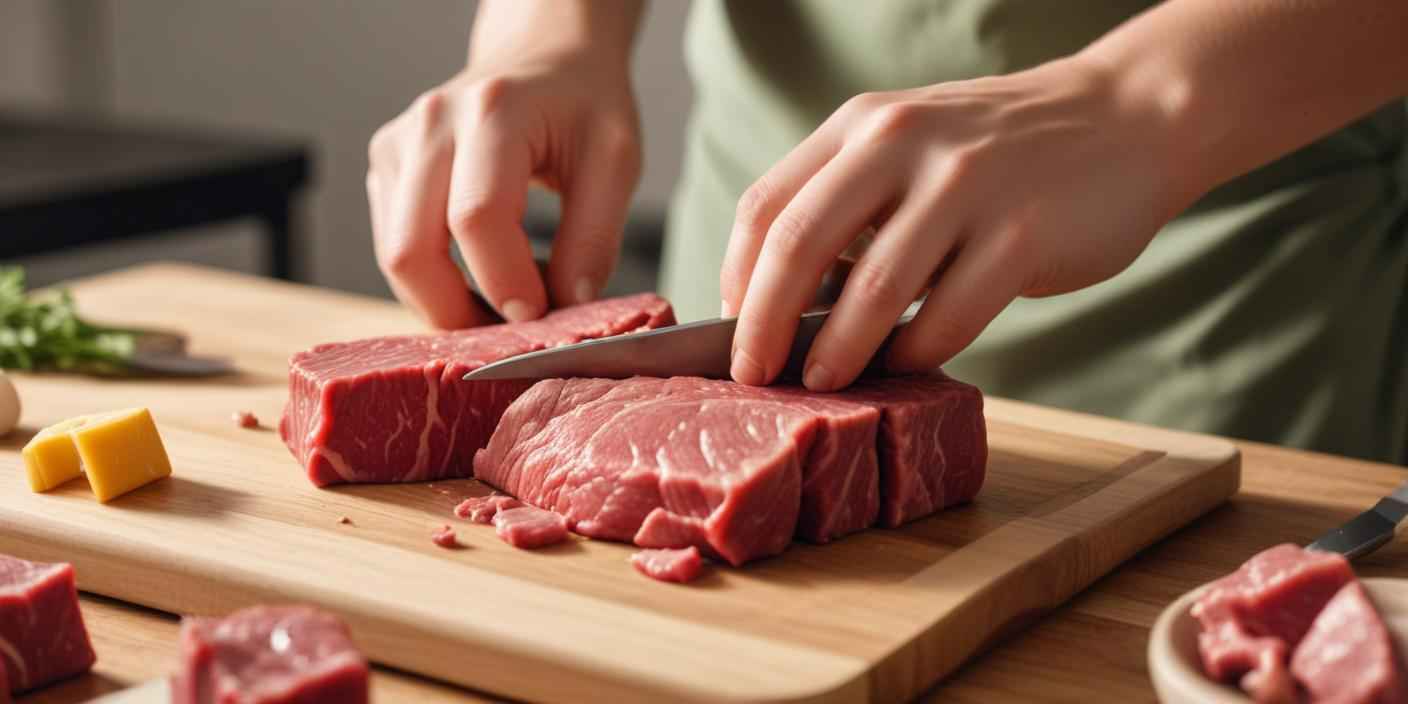
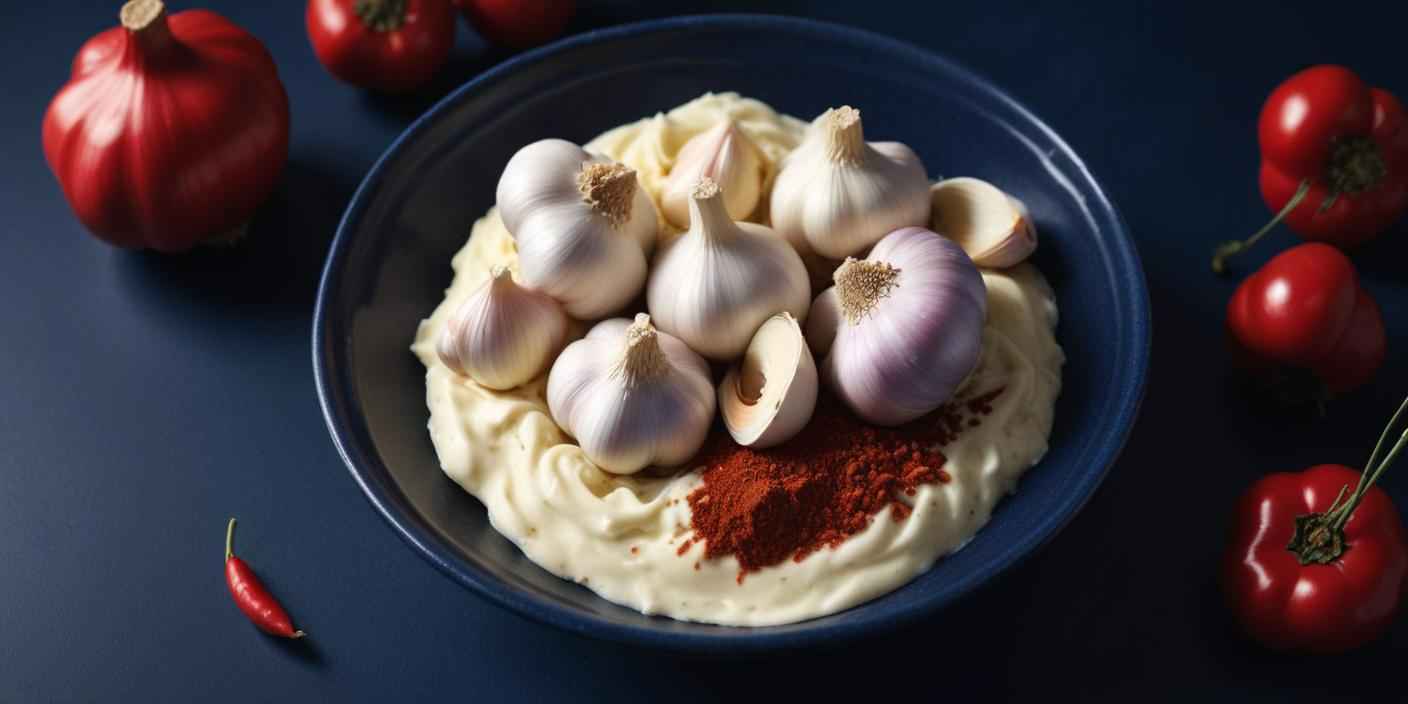
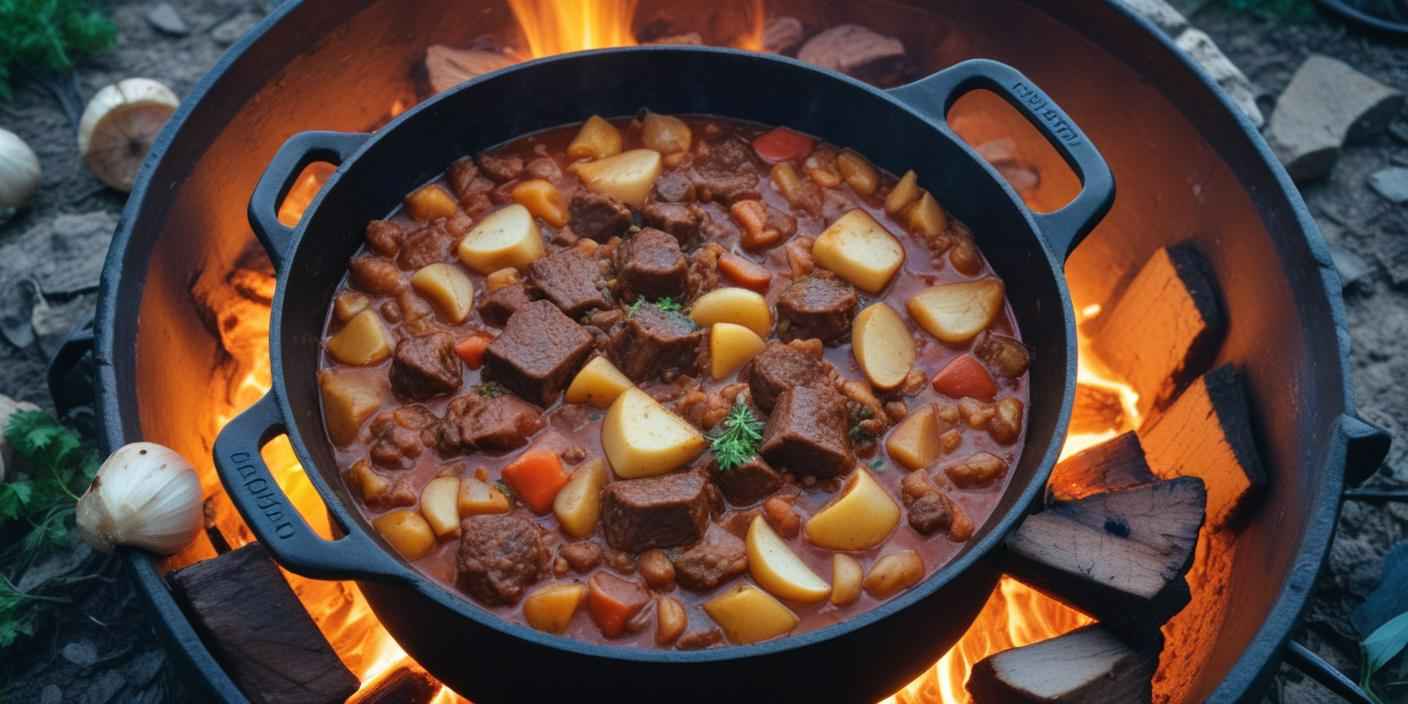



Oh my goodness, this Czech Guláš looks absolutely incredible! The description alone has my mouth watering. That thickness sounds divine, perfect for scooping up with dumplings. I’m definitely adding this to my “must-try” list! Thanks for sharing such a comforting and authentic-sounding recipe. Can’t wait to give it a go!